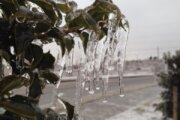Everyone is familiar with heart-healthy diets, but what about gallbladder-healthy diets? There are very few diet and recipe books on the topic, but including nutrient-rich foods in your diet will keep this pear-shaped organ in good health. Certain diets and foods can maintain a healthy gallbladder to help avoid stomach pain from gallstones.
“Gallbladder disease is common, but it’s an organ that most individuals don’t think a lot about until there’s a problem because we’re not aware of its primary function to store bile that helps us absorb fats as part of the digestive process,” says Dr. Brooks Cash, chief of gastroenterology at UTHealth and a professor of medicine at the McGovern Medical School in Houston.
[READ: What Are Symptoms of Gallbladder Problems?]
What Is the Gallbladder?
The gallbladder is one of the body’s smallest organs — measuring about 1 inch wide by 3 inches long — and is tucked under the liver. The gallbladder is attached to the intestines and stores bile, which is the fluid the liver makes to help digest fats from food. After eating, the gallbladder discharges bile through a tiny tube known as the bile duct into the stomach.
The gallbladder effectively does its job unless something blocks the bile duct like gallstones. This happens when substances in the bile harden over time and form into gallstones — the most common disorder of the gallbladder.
[READ: Stomach Ulcer Diet: Foods to Eat and Avoid.]
Diet and Gallstone Risk
A number of risk factors contribute to the formation of gallstones, including gender, body weight and diet. In the United States, an estimated 10% to 15% of the adult population develops gallstones, with approximately 1 million cases presenting each year.
According to the American College of Gastroenterology, women between the ages of 20 and 60 years are three times more likely to develop gallstones than men. Gallstones occur in up to 20% of American women by the age of 60.
Body weight is also a major factor. The risk of gallstones is higher in people who are overweight and have obesity. “Researchers have found that people who have obesity may have higher levels of cholesterol in their bile, which can lead to the formation of gallstones,” Cash says. In addition, people with obesity may also have larger gallbladders that do not function well.
Also, “crash diets can cause the liver to discharge more cholesterol into the bile that can disturb the normal balance of cholesterol and bile. That extra cholesterol can form into crystals that eventually form into gallstones,” Cash says. “That’s why diet is so important and where people can make the biggest difference in how they maintain a healthy gallbladder,” he adds.
[READ: Exercises to Lower Cholesterol.]
Gallbladder Diets: What to Know
A balanced diet loaded with vegetables and fruits is one of the top ways to improve — and protect — the health of any gallbladder. Vegetables and fruits are packed with nutrients, vitamins and fiber. Whole grains such as brown rice, oats and whole-wheat bread also should be added to your diet.
Whether or not you are at risk for gallstones, it’s important to keep your body at a healthy weight and eat a diet that is low in saturated fat and cholesterol, moderate in calories and high in fiber. Consistent intake of healthy fats — such as olive oil, avocados, nuts, seeds, eggs, fatty fish — is important in keeping the gallbladder healthy and bile flow consistent. One study following more than 45,000 men showed that those who followed a diet high in polyunsaturated and monounsaturated fats had a reduced chance of developing gallstones.
Bitter foods are also extremely useful in helping the gallbladder to contract, explains Rachel Silva, a registered dietitian with the Nutrition Clinic for Digestive Health in Atlanta, Georgia. “Think arugula, citrus, citrus peels, fennel seeds, dandelion greens, kale, watercress, artichoke, cranberries, dill and ginger.” Silva adds: “My favorite ways to add those to a diet is to always go for a dark, bitter leafy green with a salad, adding herbs like dill and ginger when cooking, and using citrus fruits and peels for an afternoon tea or flavored water.”
Foods for a Healthy Gallbladder
Certain foods have been studied for their potential to prevent gallbladder problems or reduce symptoms. Low-fat foods are typically a staple in many diets, but experts emphasize the importance of healthy fats in meals.
“Decades of low-fat dieting and fear of fats have left a lot of people with stagnant gallbladders,” Silva adds. “In practice, we do see low fat intake at the root cause of gallbladder issues, nutrient deficiencies and improper detoxification.”
For a healthy gallbladder, incorporate the following foods into your diet:
— Avocados.
— Beans.
— Citrus fruits.
— Dark greens, including arugula, dandelion and kale.
— Eggs.
— Fatty fish.
— Low-fat dairy.
— Nuts, particularly almonds and peanuts.
— Olive oil.
— Peas.
— Seeds.
— Whole grains, including whole-wheat bread, brown rice, oats, bran cereal.
Foods to Avoid for a Healthy Gallbladder
Researchers say many gallbladder symptoms stem from the modern Western diet, which is high in refined carbohydrates and saturated and trans fats.
“When symptoms of gallstones occur, it typically happens as the organ tries to squeeze and some of the gallstone is blocking the bile,” Cash says. “It’s the squeezing that causes pain because the bile can’t get through.”
Changing your diet won’t get rid of gallstones that are already there, but eating a healthy, balanced variety of nutrients and limiting the amount of saturated fats and cholesterol-heavy foods may help ease symptoms or prevent future gallstones.
Try to avoid or limit these high-fat foods in your diet:
— Fried foods.
— Highly processed foods, including doughnuts, pies, cookies.
— Red, processed meats.
— Refined grains.
— Soft drinks.
— Sugar.
— Whole-milk dairy products, including cheese, ice cream, butter.
6 Tips for a Healthy Gallbladder
1. Don’t miss meals
Every time you eat, your gallbladder releases bile for proper digestion. When you skip meals, the bile can build up. This build up can elevate cholesterol levels in the gallbladder. Over time, the waxy fats can harden into gallstones. Some bile acids may make you more likely to develop gallbladder cancer.
2. Pick whole grains
They pack lots of rough fiber, which lowers your LDL, or “bad,” cholesterol. That protects your heart and helps keep gallstones away. Fiber gets your digestive system moving and flushes bile from your body. Aim to eat more high-fiber foods like whole-grain bread and pasta and brown or wild rice. Other whole grains include oatmeal, popcorn, barley and bulgur.
3. Load up on fruits and veggies
Fresh fruits and vegetables are always good for your health and that’s no different for the gallbladder. Fruits and greens are bursting with vitamins, including vitamin C and E. One study found that taking a vitamin C supplement helped reduce the prevalence of gallstones.
4. Avoid crash diets.
That’s because losing a lot of weight quickly keeps your gallbladder from emptying properly — which can eventually lead to the formation of gallstones. To lose weight in a healthy manner, aim to shed 1 to 2 pounds a week by eating a healthy, balanced diet and incorporating regular exercise into your routine.
5. Add olive oil
It turns out that this core ingredient of the popular Mediterranean diet is also good for your gallbladder. Olive oil is a healthy source of unsaturated fat, which helps the gallbladder to clear out. Studies have proven that olive oil’s unique qualities enhance gallbladder emptying to reduce disease risk.
6. Get nuts.
Nuts offer tons of nutrition as they are high in fiber and healthy fat. They also have lots of plant sterols, compounds that block your body from absorbing cholesterol — and this may help prevent gallstones from forming. The Nurses’ Health Study, which followed more than 80,000 women ages 30 to 50 years old over two decades, examined the consumption of an ounce of peanuts, peanut butter and other nuts five times a week and found a reduction in the need to remove the gallbladder, called a cholecystectomy.
Diet After Gallbladder Surgery
If you need to have your gallbladder removed, it’s common to experience watery and loose stools. Diarrhea can linger from a few weeks to a few months after surgery. “Fat digestion post removal is not as efficient because the liver is slowly producing and releasing bile, which will slowly trickle into the intestines,” Silva says.
Your diet after gallbladder removal plays an important role in mitigating symptoms.
Tips to help improve diarrhea after gallbladder removal:
Limit high-fat foods.
Fried, greasy foods and fatty sauces and gravies should be avoided after the surgery. Choose low-fat meals with no more than 3 grams of fat in each serving.
Boost fiber.Extra fiber in your diet will help regulate bowel movements. Adding soluble fibers like oats, peas, beans and barley will help achieve a higher fiber diet. Be sure to add fiber slowly to avoid unnecessary cramping and gas.
Smaller, frequent meals.
By eating smaller portions of food, but more frequent meals, the body will be able to discharge bile at a more constant rate that could lead to less diarrhea.
Add a supplement.Consider taking a bile supplement (such as Ox Bile) that can be helpful to get more concentrated doses of bile when eating higher fat meals. Check with your doctor before using supplements following surgery to make sure they’re safe for use.
More from U.S. News
10 Weird Things That Can Make You Poop
How to Describe Medical Symptoms to Your Doctor
On a Scale From 1 to 10: Most Painful Medical Conditions
Eating Your Way Toward a Healthy Gallbladder originally appeared on usnews.com
Update 07/19/22: This story was published at an earlier date and has been updated with new information.







